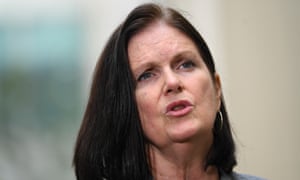Extract from The Guardian
It is beyond belief the government would consider such a harmful move for budget savings, welfare body chief says
Australia’s peak welfare body has blasted as “beyond belief” a
confidential proposal that would expand the robodebt scheme to
pensioners and other “sensitive groups” to meet the scandal-ridden
program’s $2.1bn promised budget savings.
In the latest controversy to hit the scheme, Guardian Australia last week revealed leaked documents showing the government would fall $600m short of its required budget savings unless it expanded the robodebt scheme to hit “sensitive” groups originally quarantined from data matching.
But the Australian Council of Social Service chief executive, Cassandra Goldie, said that would have disastrous consequences for people who were already disadvantaged.
“It is beyond belief that the government would consider expanding
robodebt to vulnerable groups, considering the scheme continues to cause
so much harm in our community,” she said.In the latest controversy to hit the scheme, Guardian Australia last week revealed leaked documents showing the government would fall $600m short of its required budget savings unless it expanded the robodebt scheme to hit “sensitive” groups originally quarantined from data matching.
But the Australian Council of Social Service chief executive, Cassandra Goldie, said that would have disastrous consequences for people who were already disadvantaged.
The documents, stamped “PROTECTED CABINET”, were created for the government services minister, Stuart Robert. He was briefed on the proposal at least twice, according to an early draft ministerial submission sent to him by senior department bureaucrats.
Robert’s spokesman would not address questions about the proposal last week and would only say: “The government is not considering any proposal to commence online compliance for vulnerable Australians.”
The draft proposal created by the department required the support of Robert and the social services minister, Anne Ruston, before it would go to Scott Morrison’s cabinet next month, according to the documents.
On Monday, a department spokeswoman declined to comment and referred Guardian Australia to Robert’s statement when asked if the Department of Human Services was still advocating for the plan or whether the minister had rejected it.
Under the proposal, the department recommends a “modest pilot” before the government considers how it might conduct the 350,000 “sensitive” income reviews required to meet the budget targets. These would fall on people aged 65 and over, those living in remote areas, where there are a large number of Indigenous people, and others considered vulnerable by Centrelink.
Goldie said the scheme was so “deeply flawed that it should be immediately abolished” and redesigned to be “fair and humane”.
But she added: “As we understand it, the scheme will continue to reverse the onus of proof onto people affected and use averaging which is leading to inaccurate debts.
“People who have mental health issues, depression, or poor access to communications will be even more disadvantaged if they’re targeted by robodebt, but that seems to be what the government is keen to do to meet revenue targets.”
The shadow minister for government services, Bill Shorten, and the Greens senator and long-term critic of the program Rachel Siewert both told Guardian Australia their parties would use recently established Senate inquiries to probe the proposal.
Department of Human Services officials will be grilled about the robodebt scheme at one inquiry later this year, while another looking at Centrelink outsourcing is set to investigate the use of labour hire within the program.
Shorten said he was “deeply concerned” by the possibility the scheme could be expanded.
“It is clear from the leaked documents that the Department of Human Services relies on this dramatic escalation to meet its budgeted savings,” he told Guardian Australia.
Siewert, who will chair a Senate inquiry into the robodebt scheme but spoke to Guardian Australia in her capacity as a Greens senator, also planned to scrutinise the proposal.
“These groups are vulnerable groups, going after them will be devastating,” she said.
Critics of the scheme – which is currently facing a legal challenge in the federal court – say it places the onus on past and current welfare recipients to prove they do not owe historical welfare debts. They also question the methods used to calculate the alleged overpayments.
The scheme came under renewed fire in recent weeks after a string of controversial cases, prompting Labor to join the Greens and welfare groups in calling for the program to be abolished.

No comments:
Post a Comment